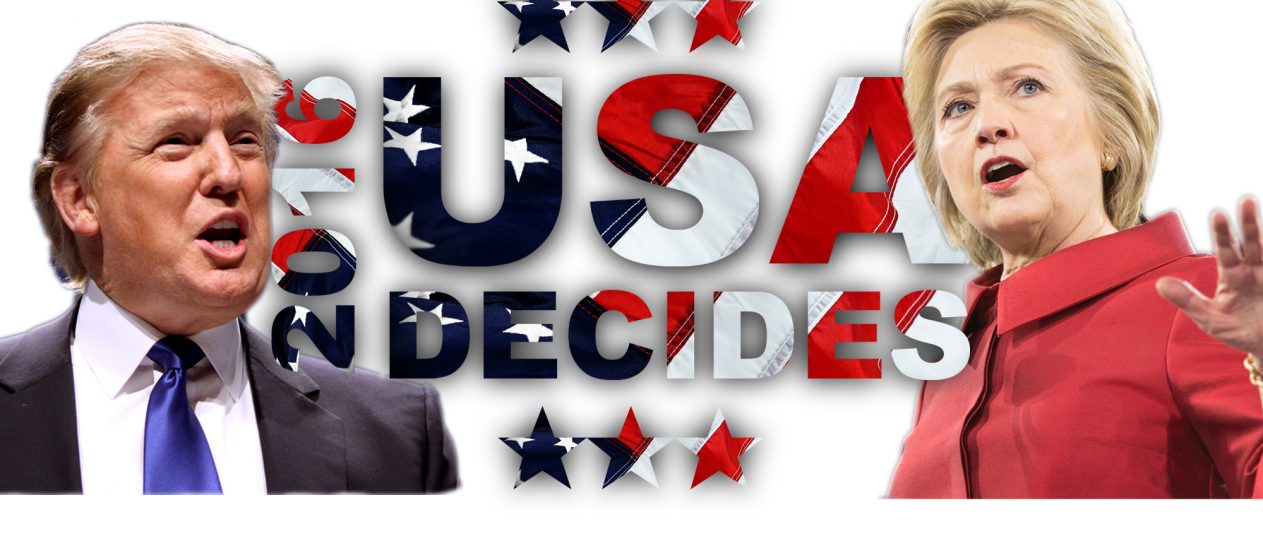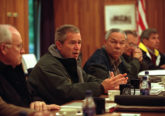The election of Donald Trump is a political earthquake with few direct precedents. Andrew Jackson’s election as a populist in 1832 is one possibility. As a novice to elected office, President Eisenhower’s election in 1952 has that in common but little else. Ideologically, Trump’s radical reforms permit a loose analogy with Ronald Reagan’s agenda in 1980, but President Reagan was an outward-looking and internationally engaged White House incumbent. Trump is decidedly inward looking and isolationist. His conversion into a normal presidential candidate has been remarkable.
Trump’s intelligence and knowledge of the world of social media and TV entertainment gave him a major advantage during the Republican presidential primaries and then the election campaign. Both in the state primary appearances and during the primary televised debates, he exploited his understanding of social media using effective one-liners and wicked characterisations. Willing to describe groups other than whites in pilloried language: Mexicans as criminals, for instance, gave Trump a massive salience in the contest. He was streets ahead of the other dozen or so Republican Party (GOP) nominee hopefuls.
He slayed his party rivals such as Ted Cruz and Carly Fiorina with rude characterisations that were not refuted and mocked interviewers, which appeared to normalise Mr Trump as ‘a regular guy’, who was in touch with certain groups of ordinary voters. These voters are opponents of Healthcare, victims of de-industrialisation and, above, they are white voters. Trump won 58% of white voters and a mere 8% of African Americans. His endorsement by extremist racist groups did not harm his popularity with this large pool of white male (53%) and female (42%) voters. He won a mere two percentage points more Latino voters (29%) than Mitt Romney, the Republican Party’s nominee for President of the United States in 2012; however, in some states, notably Florida, this support was helpful.
Once anointed as the Republican presidential nominee, the disdain directed toward him by leading GOP members merely increased his popularity with voters. The protracted electoral break by Speaker Paul Ryan and Senator John McCain, and the pointed silence of the Bush political dynasty, rebounded positively onto Trump. It confirmed his status as a genuine Washington outsider. The criticism of Trump’s credentials by the elite of the Republican foreign policy community similarly had no impact on his electoral appeal.
Despite fluctuating popularity at various points, Trump’s consistent themes of uncontrolled immigration, free trade harms to manufacturing, reduced tax rates and job creation kept him afloat as a plausible candidate amongst his core constituency. This group is primarily made up of whites without a college degree (67%) earning between $50–100k (50%) or over $100k (48%). ‘Make America Great Again’ and ‘Take Back America’ have been crisply expressed Trump mantras, which are a coded racial message. The appeal of these messages to certain voters, together with an aggressive international policy demanding NATO members and other Allies fund more of their own defence, enabled Trump to succeed despite his refusal to release his tax returns and his xenophobia and misogyny.
Above all Trump knows how to use the media — in a way which none of his rivals did, including Democratic nominee Hillary Clinton. He understood the three national presidential debates had to be as much about entertainment as policy wonk discussion, and that to sit meekly while his opponent declaimed her policies did not win viewers. Instead he interrupted, often forcefully, and drew attention to himself.
President-elect Trump completed this normalisation process with his early hours’ respectful acceptance speech, which began — unexpectedly — with compliments to his defeated contestant. He clearly knows the difference between campaigning and being president in waiting. Whether this subtlety is a sufficient basis for the art of governing (or for winning over those he has pilloried) is something the rest of the world will soon have to judge. It is not a trivial question.






